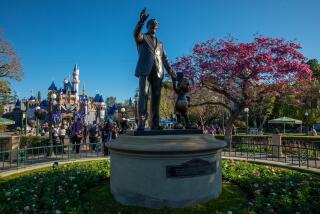Employers May Deduct Meals Given to Workers
- Share via
Never mind what the IRS says. There really is a free lunch.
A federal appeals court in San Francisco ruled Wednesday that certain employers that provide free meals for their employees can deduct 100% of those expenses on their tax returns.
The decision represents a major victory for resorts, hotel chains and casino operators that for a variety of reasons confine employees to the business premises during work hours.
The case, which was closely followed by hotel and gaming trade groups, involved a long-running tax dispute between the Internal Revenue Service and Boyd Group, a firm that runs four Las Vegas gambling halls including Stardust Resort & Casino.
“We’re elated,” said Charles L. Almond, a Houston lawyer for Boyd. “This is a real dollars-and-cents issue for companies that need their workers to stay on the premises.”
In its tax returns for 1987 and 1988, Boyd had taken a 100% tax deduction for the cost of free meals served in employee cafeterias.
Providing free meals to keep employees on campus made good business sense, Boyd’s attorneys argued. Employees need to be on hand to serve customers. And many of Boyd’s employees had easy access to cash and gambling chips, requiring special checkout procedures before they are permitted to leave the workplace.
The IRS, however, said existing tax laws entitled Boyd to only an 80% deduction. The tax agency eventually sent the gaming firm a $400,000 tax bill.
Boyd appealed to the U.S. Tax Court but lost in a 1997 ruling.
However, in a ruling reversing that decision, the U.S. 9th Circuit Court of Appeals said Boyd was entitled to an exemption--and a 100% tax deduction--because the firm proved that it had a good reason to provide free meals for employees.
“While reasonable minds might differ regarding whether a stay-on-premises policy is necessary for security and logistics, the fact remains that the casinos here operate under this policy,” wrote Judge M. Margaret McKeown for a unanimous three-judge panel.
The court held that it would not have been enough for Boyd “simply to wave a magic wand” and say it had a policy in order to secure a tax deduction. But Boyd had shown it had a “legitimate business reason” for its policy, the court stated, and “it was inappropriate to second-guess these reasons.”
Almond, Boyd’s attorney, said that if the court had ruled for the IRS, employees who regularly get free lunches would have been obligated to report those meals as income and pay taxes on them.
Attorneys for the IRS declined to comment.
On Wednesday, other casinos welcomed the appeals court’s decision.
The ruling will benefit employers that provide free meals to “tens of thousands” of employees, said Kevin McGeehan, a partner with Irell & Manella in Los Angeles, which filed a friend-of-the-court brief on behalf of Mirage Resorts.
The decision doesn’t necessarily mean that all employers that provide free meals will secure the 100% deduction. “You still have to show that this is a good thing for your business to do,” McGeehan said.
More to Read
Inside the business of entertainment
The Wide Shot brings you news, analysis and insights on everything from streaming wars to production — and what it all means for the future.
You may occasionally receive promotional content from the Los Angeles Times.










